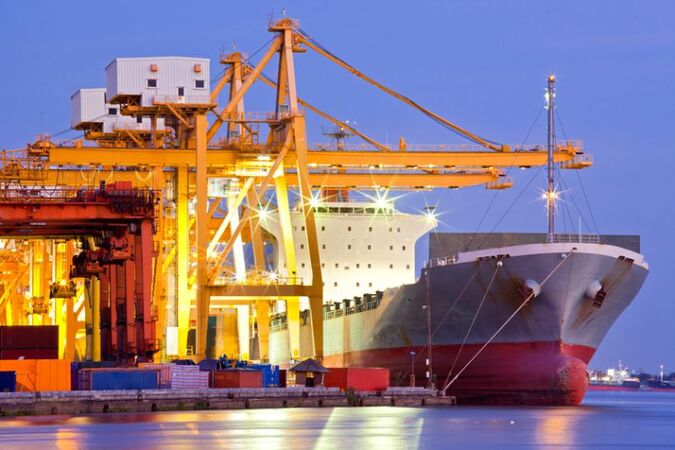UK and US announce landmark tariff agreement aimed at safeguarding jobs
by David Fleschen

The United Kingdom and the United States have reached a significant tariff agreement that both governments say will protect thousands of jobs, lower trade barriers, and open new markets for industries on both sides of the Atlantic. The agreement, announced by UK Prime Minister Sir Keir Starmer and U.S. President Donald Trump, was hailed as a milestone in strengthening the long-standing economic ties between the two countries.
“This historic deal delivers for British business and British workers, protecting thousands of British jobs in key sectors including car manufacturing and steel,” Prime Minister Starmer said. “My government has put Britain at the front of the queue because we want to work constructively with allies for mutual benefit rather than turning our back on the world.”
Under the agreement, the U.S. will reduce tariffs on British car exports from 27.5% to 10% for up to 100,000 vehicles annually—nearly the total volume the UK exported to the U.S. last year. Steel and aluminum tariffs, previously set at 25%, will be eliminated entirely. UK officials emphasized that the removal of these duties will save hundreds of millions of pounds annually for major manufacturers, such as Jaguar Land Rover.
“This is jobs saved, jobs won—but not job done,” Starmer added, promising further engagement to expand the agreement.
A boost for UK steel and automotive industries
The British government described the deal as critical for stabilizing the domestic steel industry, which officials said was “on the brink of collapse just weeks ago.” Recent government interventions included taking control of British Steel to safeguard jobs in Scunthorpe and other areas.
Adrian Mardell, CEO of Jaguar Land Rover, welcomed the agreement, stating: “The car industry is vital to the UK’s economic prosperity, sustaining 250,000 jobs. We warmly welcome this deal which secures greater certainty for our sector and the communities it supports.”
The U.S. also acknowledged the UK’s efforts to address global steel overcapacity and confirmed plans to develop a new steel and aluminum trading framework, replacing previous Section 232 tariffs.
Expanded market access for U.S. exporters
For the U.S., the deal opens significant new opportunities, particularly for agricultural exports. According to the White House, the agreement provides “billions of dollars of increased market access” for American producers. This includes tariff-free quotas for beef exports and the elimination of tariffs on ethanol shipped to the UK.
“The deal includes billions of dollars of increased market access for American exports, especially in agriculture, dramatically increasing access for American beef, ethanol, and virtually all of the products produced by our great farmers,” President Trump said.
The White House noted that U.S. ethanol exports alone could increase by over $700 million, while beef and other agricultural products could see an additional $250 million in export opportunities.
“This is now turning out to be, really, a great deal for both countries,” Trump added.
Additional commitments and future cooperation
The agreement includes commitments to streamline customs procedures, enhance intellectual property protections, and create secure supply chains for aerospace and pharmaceutical products. While some tariffs and non-tariff barriers remain—such as the UK’s 2% digital services tax—the two governments pledged to negotiate further agreements in sectors like pharmaceuticals and digital trade.
Both sides also agreed to prioritize the UK in any future tariff adjustments linked to U.S. trade defense actions, providing British exporters with a degree of certainty in an often-volatile trade environment.
The UK and U.S. further signaled ambitions for deeper collaboration in advanced technologies, including biotech, life sciences, quantum computing, nuclear fusion, aerospace, and space exploration.
A political and economic milestone
Announced on the 80th anniversary of Victory in Europe Day, both governments framed the agreement as not only an economic achievement but also a reaffirmation of the close historical and strategic partnership between the two nations.
“As VE Day reminds us, the UK has no greater ally than the United States,” Starmer remarked. “So I am delighted that eight decades on, under President Trump, the special relationship remains a force for economic and national security.”
President Trump echoed the sentiment, saying the agreement sets the stage for a “golden age of new opportunity” for American exporters and underscores the U.S.’s commitment to fair and reciprocal trade.
Next steps
While the agreement marks a breakthrough, both sides acknowledged that detailed legal work and further negotiations remain, particularly on pharmaceuticals and digital services. Nevertheless, officials on both sides described the deal as a foundation for a broader economic partnership that could evolve in the coming months.
“Today’s action also sets the tone for other trading partners to promote reciprocal trade with the United States,” the White House said.
UK Business and Trade Secretary Jonathan Reynolds emphasized the broader significance: “Our calm approach and proactive engagement with the U.S. has resulted in this deal which cuts tariffs for UK industry and costs for businesses. But this is only the beginning.”
Source: White House, British Goverment, Photo: Fotolia

